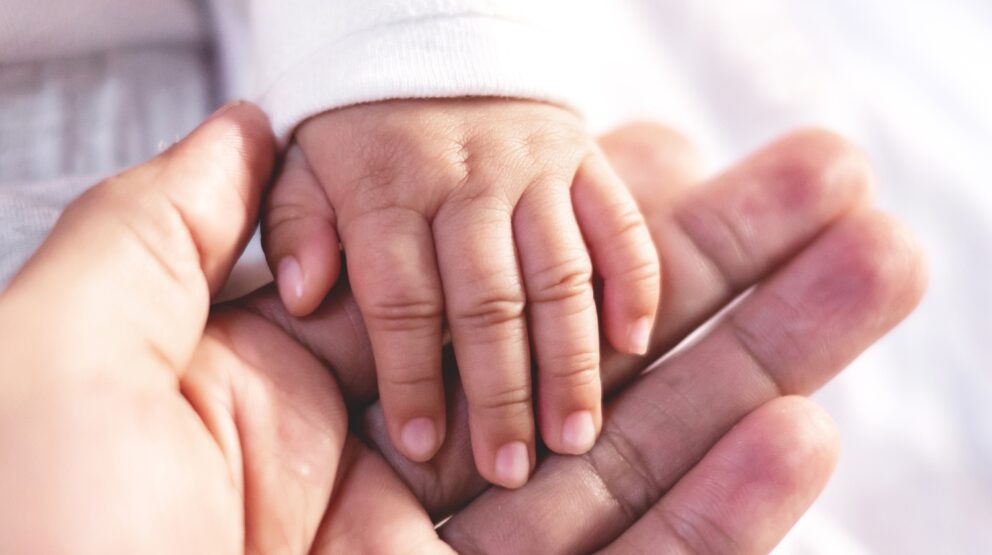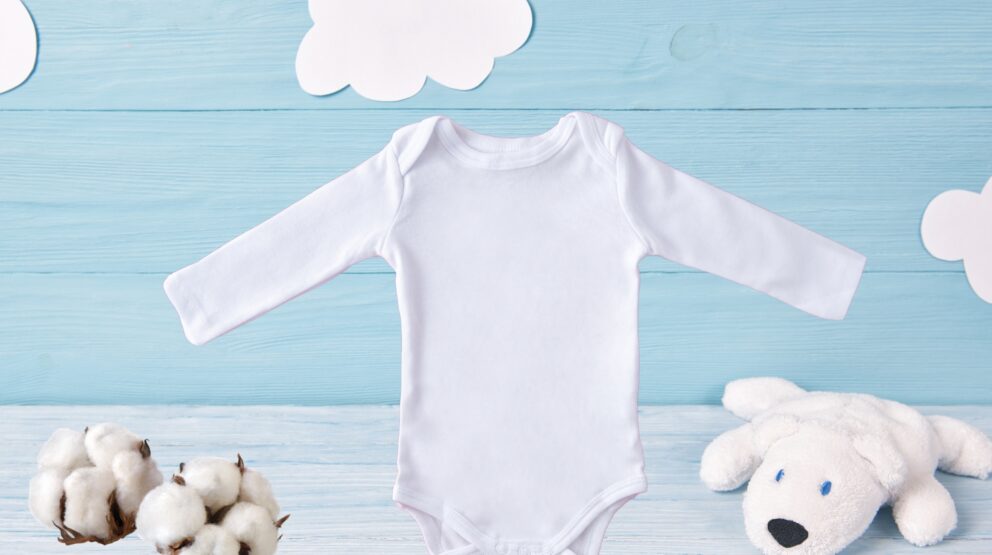Eczema, also known as atopic dermatitis, is a common skin condition, especially in newborns and infants. The hallmarks of eczema are red, itchy, dry, and sensitive skin. While eczema can’t be cured, it can be effectively managed with gentle care, lifestyle changes, and sometimes medication under a doctor’s supervision.
Why Newborns Get Eczema?
Eczema often first appears in early infancy. In fact, over 20% of babies develop symptoms within their first 6 months of life. The exact causes are not fully understood, but contributing factors likely include:
- Genetics – Eczema runs strongly in families with a history of allergies or asthma.
- Overactive immune system – Eczema is linked to an oversensitive immune response that perceives harmless substances as threats.
- Defective skin barrier – Babies with eczema lack sufficient proteins and lipids in their outermost skin layer to prevent moisture loss and irritation.
- Environmental triggers – Harsh soaps, rough fabrics, temperature changes, and other external irritants can provoke eczema flares.
While you can’t change your baby’s genes, many measures can be taken to support healthy skin barrier function and avoid triggers.

Gentle Newborn Eczema Treatments
When caring for your newborn’s delicate skin, the mantra is: gentleness and moisture. Aggressive or frequent washing strips away protective oils. Rubbing with towels can damage the skin barrier. Irritating chemicals in soaps and detergents can further provoke sensitive skin.
Instead, try these soothing remedies:
- Bathe sparingly, using mild cleansers. Limit baths to 5-10 minutes with tepid water. Pat dry instead of rubbing.
- Apply paraffin-free and fragrance-free moisturisers when skin appears dry multiple times per day.
- Dress your baby in soft cotton clothing next to the skin. Layer loose outfits to avoid overheating.
- Note and avoid personal triggers, like certain fabrics, temperature, pets, smoke, and strong scents.
- Consider washing new clothes in fragrance-free detergent prior to wearing. This removes traces of irritating textile chemicals.
- Use dye-free, perfume-free laundry detergents formulated for sensitive skin on all of baby’s clothing and linens.
- Run a cool mist humidifier in baby’s room, especially during dry winter months. Proper humidity helps prevent the skin from drying out.
Do not use topical steroids with paraffin, natural oils and or natural fat (butters) based creams as these will clog your child’s skin pores.
The Power of Cotton Clothing

What a baby wears directly against their skin can significantly impact eczema. Scratchy, stiff, or synthetic fabrics tend to worsen irritation. Therefore, dress your newborn primarily in super soft cotton clothing for comfort. Cotton has many advantages:
- Breathable & Absorbent – Unlike synthetic fibers, air and moisture can pass freely through cotton fabric. This circulates air near the skin while wicking away sweat.
- Less Irritating – High quality cotton feels extremely smooth against sensitive skin without causing friction. The fibers have a fluffy texture that cushions rather than scratches.
- Natural Material – Cotton is among the least chemically-treated textiles. While processing methods can vary, cotton generally lacks toxic binders, flame retardants, formaldehyde, and other concerning additives often found in synthetic clothing.
- Safe for Sensitive Skin – Cotton ranks as one of the most hypoallergenic fabrics, meaning it rarely causes allergic reactions. It is unlikely to trigger irritation or inflammation.
From onesies to socks, choose lightweight, 100% cotton items whenever possible. Look for labels that say “organic cotton” or “chemical-free” for ultimate gentleness. Also wash all new baby clothes in a gentle, fragrance-free laundry detergent before wearing. As an extra soothant, put socks, mittens, or cotton gloves on a newborn’s hands to prevent scratching irritated patches. With proper care, cotton’s natural softness can help restore the skin’s delicate balance.
Add Tencel to the Mix
Although cotton clothing is a great choice for babies or children with Eczema, we at Happy Skin went a step further and developed a unique polymer that can be applied to cotton creating eczema clothing that not only treats the symptoms but targets the root cause.
Find out more about our Tencel / cotton blend eczema clothing.
Outlook for Healing
While dealing with eczema can be challenging in the beginning, take heart in knowing that the majority of babies significantly improve by age 2-3. With diligent skin care, flare ups often decrease in frequency and severity. Of course, consult your doctor if symptoms seem severe or unresponsive to over-the-counter treatments. They can assess the situation and provide further recommendations.
In conclusion, remember to be patient and treat your baby’s skin with utmost gentleness. This is especially key after an eczema flare up while the skin is healing. Opt for simple, non-irritating skin care and clothing to support skin health without over-drying or disrupting skin barrier function. By being attentive to your little one’s needs and avoiding triggers, you can help relieve discomfort and itching until your baby outgrows this frustrating phase.

How can I help my newborn with eczema?
Gently bathe your newborn no more than a few times per week using warm water and a fragrance-free, hypoallergenic wash. Moisturise multiple times per day with a gentle, unscented cream or ointment to hydrate the skin barrier. Dress your baby primarily in soft cotton next to the skin and avoid irritants like scratchy fabrics, sweat, saliva, etc. Run a humidifier to add moisture back into dry air.
How long does newborn eczema last?
Eczema often first appears within a baby’s first 6 months, occasionally lasting into the toddler years. However, research shows about 60% of babies see improvement by age 1. By ages 2-3, many children outgrow eczema or at least experience less frequent flares.
What triggers eczema in newborn?
Triggers can be grouped into 3 main headings:
- Nutritional and environmental allergies – allergies to food groups, harsh soaps/detergents, scratchy fabrics like wool against the skin, excessive bathing/scrubbing, saliva, dust mites, pet dander, cigarette smoke, and synthetic chemicals in lotions or clothes. Identifying and minimising exposures to irritants can help prevent flare ups.
- Stress related allergies – flare-ups can be caused by the stress of vaccinations, teething, flues, colds and illnesses such as Chicken pox.
- Temperature Change – Taking into account that skin is the largest organ in our body and is responsible for controlling body temperature, when skin is damaged by eczema, that important temperature control function is compromised so wherever the skin is damaged by eczema, it isn’t contributing to temperature control. This puts added strain on the healthy parts of the skin and causes flare ups.
Does drinking water help with baby eczema?
Staying hydrated supports skin health. Breastfed infants get sufficient fluids, but supplement with a bottle if needed. For toddlers, provide plenty of water and limit sugary juices or sodas which may worsen eczema. While water alone cannot cure eczema, preventing dehydration protects skin barrier function to help avoid flares.
HappySkin Consultation
Book a consultation with one of our skin experts, which is free to all existing HappySkin customers or at a cost of £15 which is fully redeemable against future HappySkin purchases.
Our consultants understand the issues you face using outdated paraffin-based creams and lotions and can tell you all you need to know about how best to treat eczema.

